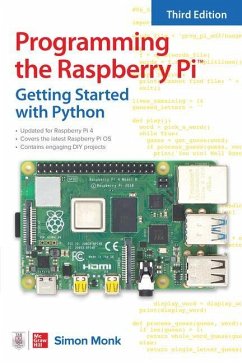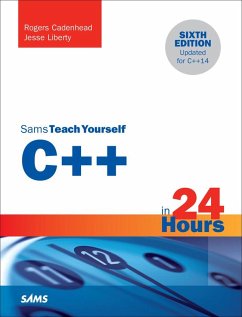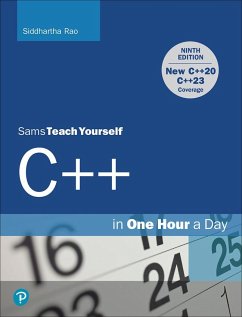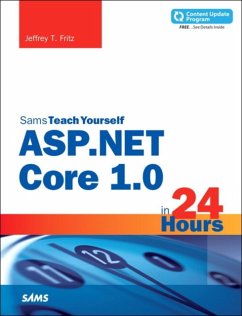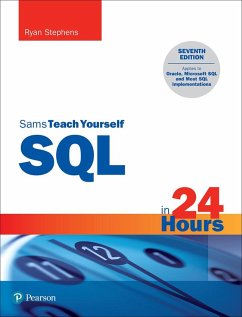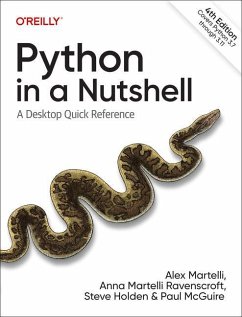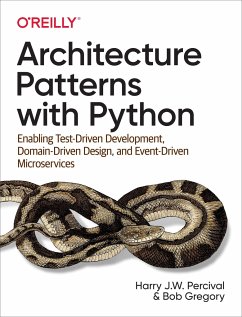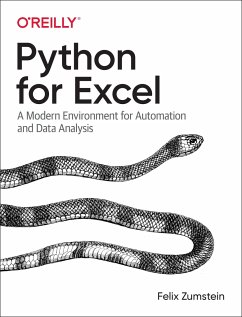Nicht lieferbar
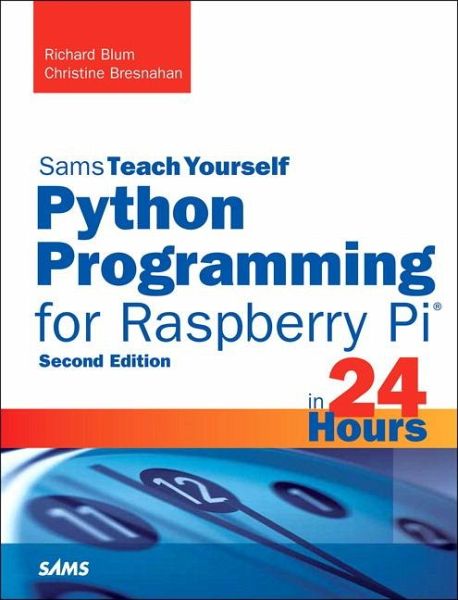
Python Programming for Raspberry Pi, Sams Teach Yourself in 24 Hours
Versandkostenfrei!
Nicht lieferbar
In just 24 sessions of one hour or less, Sams Teach Yourself Python Programming for Raspberry Pi in 24 Hours teaches you Python programming on Raspberry Pi, so you can start creating awesome projects for home automation, home theater, gaming, and more. Using this book's straightforward, step-by-step approach, you'll move from the absolute basics all the way through network and web connections, multimedia, and even connecting with electronic circuits for sensing and robotics. Every lesson and case study application builds on what you've already learned, giving you a rock-solid foundation for re...
In just 24 sessions of one hour or less, Sams Teach Yourself Python Programming for Raspberry Pi in 24 Hours teaches you Python programming on Raspberry Pi, so you can start creating awesome projects for home automation, home theater, gaming, and more. Using this book's straightforward, step-by-step approach, you'll move from the absolute basics all the way through network and web connections, multimedia, and even connecting with electronic circuits for sensing and robotics. Every lesson and case study application builds on what you've already learned, giving you a rock-solid foundation for real-world success! Step-by-step instructions carefully walk you through the most common Raspberry Pi Python programming tasks. Quizzes at the end of each chapter help you test your knowledge. By the Way notes present interesting information related to the discussion. Did You Know? tips offer advice or show you easier ways to perform tasks. Watch Out! cautions alert you to possible problems and give you advice on how to avoid them. * Get your Raspberry Pi and choose the right low-cost peripherals * Set up Raspian Linux and the Python programming environment * Learn Python basics, including arithmetic and structured commands * Master Python 3 lists, tuples, dictionaries, sets, strings, files, and modules * Reuse the same Python code in multiple locations with functions * Manipulate string data efficiently with regular expressions * Practice simple object-oriented programming techniques * Use exception handling to make your code more reliable * Program modern graphical user interfaces with Raspberry Pi and OpenGL * Create Raspberry Pi games with the PyGame library * Learn network, web, and database techniques you can also use in business software * Write Python scripts that send email * Interact with other devices through Raspberry Pi's GPIO interface * Walk through example Raspberry Pi projects that inspire you to do even more




